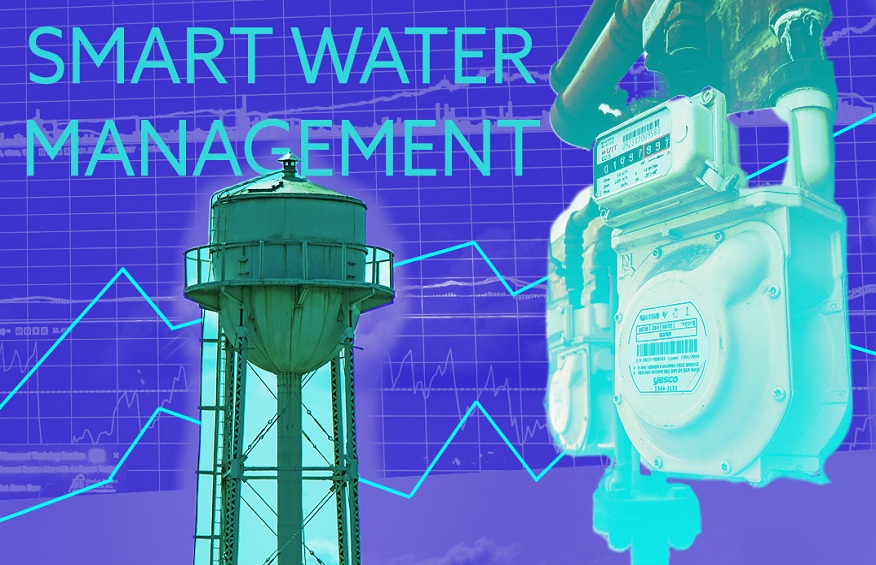The way we manage our limited resources is changing at an incredible rate in our society, thanks to innovative technological practices. One such innovation is the adoption of smart water management system that stands out among the game-changing innovations as a tool of environmental-conscious growth. With a plethora of advantages that go well beyond conventional approaches, these intelligent systems are revolutionising the way we interact with water resources. Some major reasons to embrace smart water management systems are listed below:
1. Preserving a Precious Resource: Saving Natural Resources
Water, the lifeblood of our planet, sustains all forms of life and ecosystems. Yet, its availability is finite, and the looming water crisis demands urgent action. In this context, smart water management systems emerge as a beacon of hope, offering a practical solution to conserve this invaluable resource. By employing state-of-the-art sensors and real-time monitoring, these systems empower individuals, households, and industries to take charge of their water usage. Smart water management systems vigilantly detect any anomalies in water flow, enabling swift response and repair. This translates to tangible water savings, preventing thousands of gallons from going down the drain unnoticed.
2. Real-time Leak Detection: Stopping Water Wastage
A dripping faucet may seem insignificant, but it contributes to substantial water wastage over time. Smart water management systems usher in an era of real-time leak detection, where even the tiniest of leaks are promptly identified and addressed. Imagine a scenario where a pipe bursts in an unattended area. Traditional systems would only alert you once the damage is done – a flooded room, damaged property, and wasted water. However, with smart water management systems, you receive an instant notification the moment a spike in water flow is detected, allowing you to shut off the water supply remotely or call for assistance. This proactive approach not only minimizes water loss but also prevents potential structural damage.
3. Data-Driven Insights: Get Water Usage Insights
Knowledge is power, and when it comes to water usage, data-driven insights are invaluable. Smart water management systems provide a treasure trove of information about your water consumption patterns, enabling informed decisions for optimization. Through user-friendly interfaces and comprehensive reports, these systems break down your water usage by time of day, specific appliances, and even individual faucets. This empowers you to identify trends, set usage targets, and make adjustments to your daily routines. For instance, you might discover that your morning showers are consuming more water than you realized. Armed with this knowledge, you can take shorter showers or invest in low-flow showerheads, effectively reducing your water footprint. In addition to personal usage, industries and municipalities can harness this data to streamline water distribution, allocate resources more efficiently, and address potential shortages.
4. Mitigating Water Pollution: Controlling Water Quality
Smart water management systems are efficient checks against water contamination. Equipped with sensors that continuously monitor water quality parameters such as pH levels, chemical concentrations, and bacteria presence, these systems can detect pollutants in real time. The moment any irregularity is detected, the system triggers alerts to prompt immediate action. This proactive approach prevents polluted water from entering rivers, lakes, and oceans, safeguarding aquatic life and preserving the integrity of our water sources. By effectively identifying and addressing pollution sources, these systems contribute to cleaner waterways and a healthier environment for all.
5. Efficient Resource Allocation: Balancing Water Distribution for Communities
In densely populated urban areas or sprawling rural communities, equitable water distribution is essential. Smart water control system plays a pivotal role in ensuring efficient resource allocation across diverse communities. By monitoring consumption patterns and water availability, these systems enable water authorities to allocate resources based on actual demand. This dynamic allocation approach prevents disparities where some areas receive excessive water while others face shortages. Thus, smart water management systems are an invaluable tool for promoting cohesion and sustainability within communities of all sizes and ensuring equitable distribution of water.
6. Compliance with Regulations: Navigating Water Usage Regulations with Confidence
As environmental regulations become more stringent and communities demand heightened corporate responsibility, businesses and industries find themselves under increasing pressure to comply with water usage regulations. Smart water management systems offer a robust solution to navigate this complex landscape with confidence. By providing real-time monitoring and data collection, these systems enable companies to track their water consumption accurately and assess their compliance with relevant laws. In the event of any deviations from regulatory requirements, prompt notifications from the system allow for swift corrective actions, mitigating the risk of fines and reputational damage.
7. Enhancing Industrial Processes: A Strategic Approach to Sustainable Production
Industries that rely on water-intensive processes stand to benefit immensely from the implementation of smart water management systems. The utilization of real-time data insights empowers industrial operations to optimize their water consumption during manufacturing processes, thus leading to reduced production costs and minimized environmental footprint. By closely monitoring water usage patterns and identifying areas for efficiency improvements, businesses can implement targeted strategies to enhance their production practices. The integration of smart technology into industrial water systems not only leads to resource savings but also aligns with corporate sustainability goals and regulatory requirements.
8. Long-Term Investment:
Installing a smart water management system transcends the immediate benefits of water conservation. It represents a substantial long-term investment that pays dividends in various ways. For homeowners, incorporating such a system not only contributes to lower water bills but also enhances the overall value of the property. Forward-thinking buyers are increasingly drawn to homes equipped with sustainable features, including smart water solutions. This not only demonstrates a commitment to responsible resource management but also positions the property as a sound investment in a world where water scarcity is becoming more prevalent. Moreover, businesses that invest in smart water management gain a competitive edge by showcasing their dedication to sustainable practices. This commitment
Wrapping Up:
In a world where the conservation of resources is paramount, embracing smart water innovative solutions offered by Planet Smart City becomes not just a choice, but a responsibility. As we move forward, embracing these innovations will not only benefit us today but secure a brighter and more water-conscious future for generations to come!





